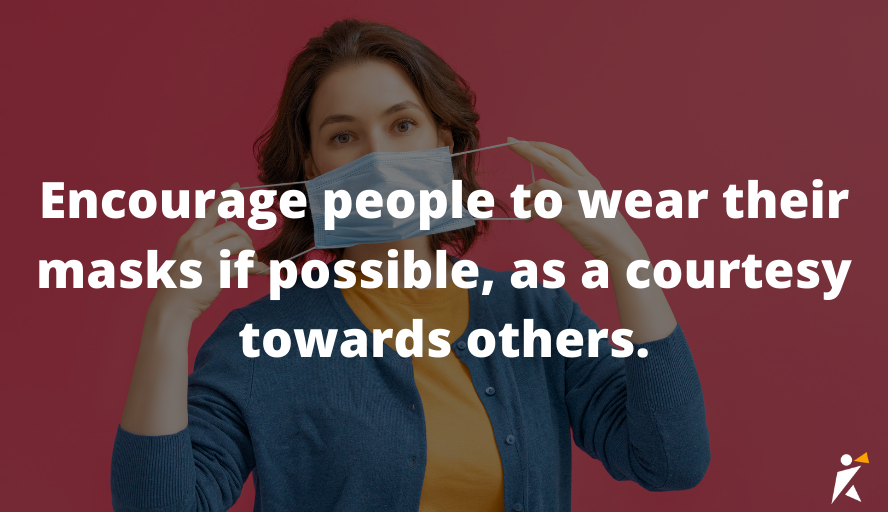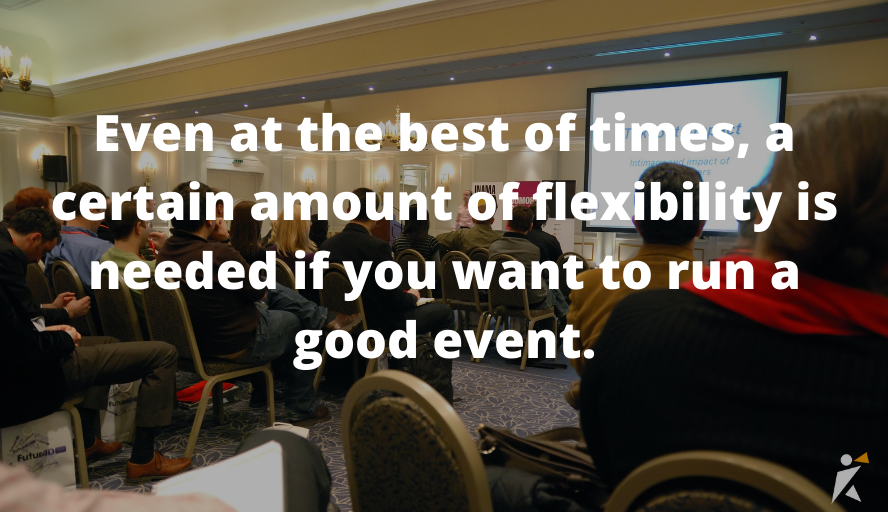What You Need to Know About Organizing Events During COVID

The COVID-19 pandemic has changed a lot of things, and even though many countries are now looking towards life after COVID and trying to remove restrictions to restore some normality, we still need to take COVID into consideration.
It’s all about minimizing risk and trying to keep people as safe as possible. In this week’s article, we’re going to take a closer look at what you need to know about organizing events in the age of COVID. Here's what you need to know:
Encourage safer behavior

As an event organizer, you have a responsibility to your guests to keep them as safe as possible. At the same time, you may be unable to mandate things like mask wearing, and if that’s not possible, then that’s okay. It can be enough to simply encourage people to wear their masks if possible, as a courtesy towards others. You can also encourage safer behaviors through providing hand sanitizing stations and thinking carefully about the way you position your seating.
Communicate the efforts you’re making
Making these efforts is one thing, but actually communicating them is another. There are two good reasons to go out of your way to show people what you’re doing to encourage safer behavior. The first is that it can lead to more people actually acting safer around others, and the second is that it can provide some much-needed reassurance in a time of high stress and anxiety. Many of your guests will appreciate the extra effort that you’re making, especially if they are in a high-risk group.
Provide refunds and have a cancellation policy
Providing refunds and having a cancellation policy are good ideas in general, but are a particularly good call in the COVID era. Life is more unpredictable than ever before, and people will be more willing to buy a ticket if they can see that they’ll be able to get a refund if they need to self-isolate or they’re unable to travel due to rising case numbers.
Prioritize marketing to your own region

With fewer people willing and able to travel across the world, and every country having its own COVID rules and regulations, it’s a smart move to aim your marketing efforts towards people in your own region. In particular, people within your country are much more likely to take the plunge and book a ticket than those who’d need to travel internationally.
Consider having an online element
More and more event organizers are turning to the internet as a way to reach more people, and the COVID-19 pandemic has brought that to the forefront. By going partly or fully online, you can help to reduce the number of in-person attendees that you have, and thereby limit the potential for the virus to spread. Going online also reduces the reliance on physical venues, which have a capped capacity. With online events, you can sell almost as many tickets as you like without worrying about maxing out.
Be flexible

Flexibility is important because things will change quickly and you’ll need to be able to respond. Speakers might pull out at the last minute because of being unable to make it to the venue, while new regulations could come in at any time that change the way that you’re able to operate. Even at the best of times, a certain amount of flexibility is needed if you want to run a good event, but during the COVID era, the event organizers who aren’t flexible are the most likely to break.
Ventilation is important
To keep your staff and visitors safe it’s important to ensure that there’s good ventilation at your conference venue. If the available ventilation system isn’t sufficient, this may include opening doors and windows and encouraging people to leave them open even when it’s cold outside. It’s better to have the windows open and for people to wear an extra layer of clothing if necessary, at least when it comes to reducing the likelihood of COVID transmission.
Keep it clean
This should go without saying, but regular cleaning is also super important. You should pay particular attention to disinfecting any surfaces that people are likely to touch, such as table surfaces and door handles. The good news is that as well as helping to combat COVID, this will also ensure that you keep the venue clean and tidy, providing a better experience for attendees.
Staff should test regularly

You can encourage your visitors to test themselves before attending, but there’s a limit to mandating that. What you can do, though, is to make sure that everyone on your conference team is regularly tested. If they test positive, they’re going to have to miss the event. It might not be ideal, but at least it will stop your employees from being the reason why an attendee takes home something more than a goodie bag.
Get insured if you can
Insuring events has always been difficult, but it’s even harder during a global pandemic. It might be difficult for you to find someone who’s willing to insure your event, but you should do your best to do so, even if it means paying higher premiums. Insurance will give you the peace of mind that you’re covered if things go wrong.
Conclusion
Now that you know our top tips for what you need to know about organizing events against the backdrop of COVID-19, we want to hear from you. Which of the tips that we shared did you find most useful, and is there anything that you think we missed?
As always, be sure to let us know in the comments so that we can keep the discussion going, and follow us on your social networking site of choice for more. We’ll see you soon with another article!






